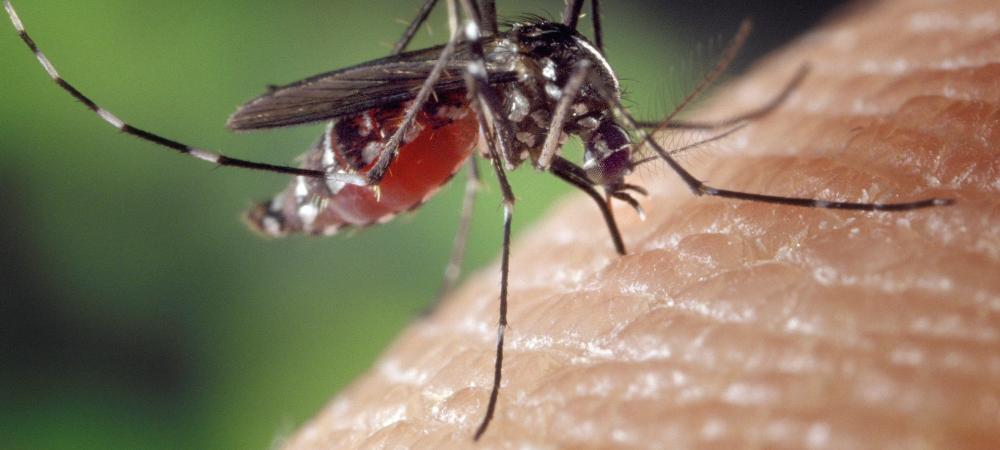Are Wilmington Residents at Risk of Getting a Mosquito-Borne Disease?

Mosquito-borne diseases are a concern in many parts of the world, including North Carolina. With the presence of various mosquito species in the state, the likelihood of contracting a mosquito-borne disease is a valid concern for residents and visitors alike.
North Carolina, like many other southeastern states, is home to several species of mosquitoes known to carry diseases such as West Nile virus, Eastern Equine Encephalitis, and Zika virus. The likelihood of contracting one of these mosquito-borne diseases varies depending on factors such as the specific species of mosquitoes present, environmental conditions, and human behavior. While the risk of contracting a mosquito-borne disease in North Carolina may be lower than in some other regions, it is still important for individuals to take precautions, like getting professional mosquito control in Wilmington, NC.
How are Mosquito-Borne Diseases Transmitted?
Mosquito-borne diseases are transmitted when female mosquitoes bite an infected individual and then bite a healthy individual, thus passing on the disease-causing pathogens. Mosquitoes are known to transmit a variety of diseases, including malaria, dengue fever, Zika virus, yellow fever, and West Nile virus. These diseases can cause a range of symptoms from mild fever to severe illness and even death.
What Mosquito-Borne Diseases Can Be Found in North Carolina?
North Carolina is home to a variety of mosquito-borne diseases that can pose a threat to public health. These diseases are transmitted through the bites of infected mosquitoes and can lead to serious health complications if left untreated. From West Nile virus to Eastern Equine Encephalitis, North Carolina faces the risk of several mosquito-borne illnesses, making it important for residents to take precautions to protect themselves from these diseases. Understanding the common mosquito-borne diseases found in North Carolina is essential for individuals to take appropriate measures to prevent infection and minimize the spread of these potentially dangerous illnesses.
West Nile virus
West Nile virus is a mosquito-borne disease that can cause flu-like symptoms, including fever, headache, body aches, and occasionally a skin rash or swollen lymph glands. In severe cases, it can lead to inflammation of the brain and spinal cord, causing symptoms such as stiff neck, disorientation, and paralysis.
Treatment for West Nile virus focuses on managing symptoms, as there is no specific antiviral medication for the virus. In severe cases, hospitalization may be necessary for supportive care and monitoring.
Peak activity for West Nile virus occurs during the summer and early fall, when mosquitoes are most active. At-risk populations include individuals over the age of 50 and those with weakened immune systems. People who work or spend a lot of time outdoors are also at higher risk for exposure to infected mosquitoes.
Eastern Equine encephalitis
Eastern Equine encephalitis (EEE) is a rare but dangerous mosquito-borne virus found in the eastern United States. Symptoms of EEE can include fever, headache, chills, and vomiting. In some cases, the infection can progress to severe symptoms such as encephalitis (inflammation of the brain), coma, and even death. There is no specific treatment for EEE, making prevention crucial.
Due to the severity of EEE and the lack of specific treatment, it is important for individuals in regions where the virus is present to take preventive measures to reduce their risk of infection. Although rare, the potential consequences of EEE make it imperative to be vigilant in avoiding mosquito bites and reducing mosquito populations.
La Crosse encephalitis
La Crosse encephalitis is a mosquito-borne viral disease that primarily affects children in the midwestern and southern United States. Symptoms of the disease can include fever, headache, nausea, vomiting, and lethargy, and in severe cases, it can lead to encephalitis, which is inflammation of the brain. Diagnosis is typically confirmed through blood tests or spinal fluid analysis.
There is no specific treatment for La Crosse encephalitis, so medical care is focused on managing the symptoms and providing supportive care. Prevention is key.
Potential long-term effects of the disease can include neurologic problems, such as seizures, developmental delays, and cognitive deficits. Risk factors for developing severe illness include age (children under 16 are at higher risk) and residing in areas with high mosquito activity.
The current distribution of the virus includes states in the midwestern and southern United States, with recent outbreaks reported in areas such as Ohio and West Virginia. Public health efforts are focused on mosquito surveillance and control to prevent further spread of the virus.
Benefits of Professional Mosquito Control in Wilmington
Professional mosquito control in Wilmington provided by Bug-N-A-Rug Exterminators offers numerous benefits for both residential and commercial properties. Our expert services can effectively eliminate mosquito populations, reducing the occurrence of mosquito-borne diseases and health risks in the area. With proactive measures, our professional pest control experts can provide long-term prevention of mosquito infestations, creating a safer and more comfortable environment for our clients.
Using professional mosquito control services also comes with advantages such as targeted treatments tailored to the specific needs of each property, ensuring maximum effectiveness in eliminating mosquitoes. Additionally, our ongoing maintenance plans help to guarantee a mosquito-free environment for the long term, giving our clients peace of mind and a worry-free outdoor experience. By entrusting the care of mosquito control to our skilled professionals, residents and businesses in Wilmington can enjoy their outdoor spaces without the nuisance and health hazards associated with mosquito infestations. Contact Bug-N-A-Rug Exterminators today!
